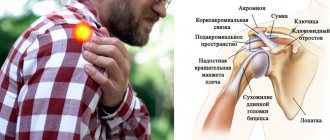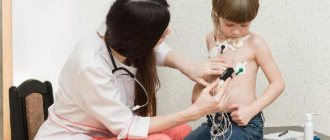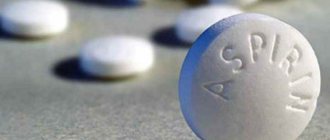Excessive amounts of ethyl alcohol have a negative effect on the body. But first of all, the load on the liver and cardiovascular system increases. The effect of alcohol on the heart manifests itself in myocardial damage, which subsequently leads to cardiomyopathy. Alcoholics also have an abnormal heart rate and heart pain. Patients, while intoxicated, do not even feel changes in the body. But this becomes noticeable the next day, when the effect of the alcohol wears off.
To prevent the development of adverse consequences, you need to figure out what to do if you feel severe pain in your heart after drinking.
Services of our clinic
Detoxification of the body
Detoxification is a process that goes through the human body, eliminating traces of alcohol or drugs.
Alcoholism coding
Effective coding for alcoholism, which will help a person return to a healthy and fulfilling lifestyle
Treatment of alcoholism
High-quality drug addiction treatment in Moscow and the Moscow region at a low price, individual therapy
Addiction rehabilitation
A powerful set of measures leading to complete relief from any addiction, working with the patient in 12 directions
Symptoms of the disease
At the primary stage of development, the disease is asymptomatic and the manifestations of cardiomyopathy are nonspecific:
- High fatigue, the patient feels tired, shortness of breath after minor exertion.
- Excessive sweating.
- Fluctuations in body weight
- Redness of the sclera, bluishness of the skin.
- Cold extremities.
- Palpitations.
- Pain localized in the left side of the chest.
- Swelling.
As the disease progresses, the symptoms become permanent and intensifying. It is accompanied by nocturnal attacks of suffocation and acute heart failure.
How alcohol affects the heart
There is a popular belief that alcoholic drinks are good for heart health. And this is partly true, small doses do have a protective effect on blood vessels. This amazing property is associated with the ability of ethanol to reduce the density of lipoproteins and cholesterol and stop their penetration into the walls of blood vessels.
It is also known that alcohol reduces the amount of fibrinogen, which prevents the formation of blood clots. But these beneficial properties of ethyl alcohol appear only if you drink no more than 10 grams per day. In other cases, alcohol is harmful to the heart muscle.
In acute alcohol poisoning, the following occurs:
- the contractile function of the myocardium is inhibited;
- sudden jumps in blood pressure;
- short-term dilation of blood vessels leads to their prolonged spasm;
- factors of severe arrhythmia arise - the amount of potassium in the blood decreases, the formation of catecholamines accelerates.
Chronic alcoholism leads to the development of alcoholic cardiomyopathy. This pathology occurs against the background of impaired synthesis of protein and ATP molecules. Such a malfunction in the body causes weakening of the heart muscle cells due to lack of energy.
Because of this, the myocardium loses function, the heart increases in size and is no longer able to cope with serious physical exertion, as a result the following occurs:
- swelling of the legs;
- severe shortness of breath, as well as rapid heartbeat when running, walking quickly or when climbing stairs;
- chest pain;
- difficulty breathing, lack of oxygen;
- arrhythmia.
If you do not pay attention to this in time and do not start treatment, the consequences may be unforeseen. With such damage to the heart, coronary insufficiency, extensive infarction, ventricular fibrillation and even cardiac arrest develop.
With a normal, healthy heart rhythm, the number of beats does not exceed 60-80.
Emergency medical intervention
A person will certainly need it after the holiday if he has:
- severe shortness of breath,
- exacerbation of any old diseases,
- panic attack,
- unreasonable fear of dying,
- lack of clarity of perception,
- sharp pain.
Such symptoms usually accompany acute heart disease. Dizziness and apnea (stopping breathing) may occur. Only a doctor can accurately determine the cause of the problem and find out why is observed . And only the doctor must prescribe medications and select the necessary therapy for each individual case.
Causes of heart pain
A common cause of pain after taking ethyl alcohol in large quantities is spasm of the coronary vessels. As a rule, the development of cardialgia occurs on the second or third day after drinking, at the moment of emerging from a long binge. This pathology is accompanied by increasing aching or stabbing pain in the area of the heart muscle. Moreover, these painful sensations are not associated with physical activity and do not go away after taking nitroglycerin.
An attack of cardialgia can last for hours; painful sensations are often accompanied by a lack of air and a rapid pulse.
Such heart problems can occur even in healthy people. In such cases, arrhythmia manifests itself in different ways:
- attack of atrial flutter;
- tachycardia;
- problems with conduction in the myocardium such as blockade;
- extrasystole;
- It becomes difficult to breathe.
If problems with the functioning of the heart muscle occur during a feast or the next day, then this indicates that the process of formation of pathologies has begun. In this case, you need to urgently consult a doctor, only he will be able to conduct a full examination and prescribe the correct medication.
It is important to call an ambulance in time in case of alcohol intoxication. The doctor will provide first aid aimed at alleviating the general condition.
Treatment with traditional methods
Traditional medicine, proven over decades, always comes to the rescue of a person’s illnesses. In fact, the following suggested ways to overcome a hangover are so simple and useful that everyone who decides to drink alcohol should know about them:
- You can reduce hangover symptoms with brine or sauerkraut juice. You can also drink kefir, orange or tomato juice. Don't forget to drink plenty of fluids. Any liquid will significantly improve the patient's condition. If a headache is added to your hangover, you can drink tea with lemon or cranberry juice.
- An egg will be no less beneficial than water. A small amount of vinegar, ketchup and salt are added to a raw egg. The cocktail is drunk in one gulp.
- You can add castor oil to warm milk, two tablespoons of oil per glass of liquid. You need to drink in large sips.
How to minimize the harm of alcohol to the heart
If you can’t give up strong drinks, then you need to at least follow a number of rules designed to reduce the damage to the heart:
- Drink only high-quality alcohol. Completely exclude surrogates.
- Control the amount of alcohol you drink and adhere to the permissible dosage.
- While drinking ethanol, do not forget about a snack, but completely avoid fatty and salty foods.
- Follow the regime, that is, drink no more than 1-2 times a week, and even less often for people suffering from heart problems.
- Do not mix medications (especially heart medications) with alcohol.
- Forget about alcoholic energy drinks.
- The list of prohibitions also includes beer. Instead, one glass of red wine is allowed.
But remember that if you experience discomfort in the heart area, it is better to completely stop drinking alcohol-containing drinks.
Medical studies have shown that contrast showers are prohibited for heart problems. In some cases, deterioration of well-being is possible, since the walls of the blood vessels are already under severe tension. Such a shower can only be taken if you feel well and have no contraindications. Before any procedures, it is recommended to consult a doctor.
What happens in the blood under the influence of alcohol
The mechanism of the effect of alcohol-containing drinks on the blood can be described as follows:
- In a healthy person, the surface of blood cells - red blood cells - is surrounded by a thin layer of a lubricant, which becomes electrified when rubbed against the walls of blood vessels.
- Each cell carries a negative charge, which causes them to repel each other.
- Alcohol helps remove the protective layer and relieves electrical stress.
- Red blood cells begin to unite, forming large elements (clots).
- There is a progressive accumulation of red blood cells depending on the amount drunk.
- As a result, the movement of blood through the capillaries is blocked, arterioles are blocked, full blood supply is stopped, tissues and organs suffer (for example, the liver, brain, and as a result, brain diseases can develop, more details here).
When to call an ambulance
Signs and symptoms for which you need to call an ambulance:
- severe headaches, which are accompanied by frequent vomiting and nausea;
- attacks of shortness of breath;
- speech problems;
- dizziness, progressive weakness;
- weakness in the leg and arm on one side, distorted facial features.
We do not recommend self-medication, as this can only aggravate the situation and lead to unforeseen consequences.
But you can temporarily ease your health until the ambulance arrives in the following way:
- taking 2 validol tablets;
- 30 drops of motherwort, tincture of valerian, Valocardin or Barboval;
- If there are no stomach problems, take one aspirin tablet.
Usually, the heart returns to normal on its own, but with excessive drinking, the risk of developing pathologies increases. It is difficult for him to cope with large amounts of ethanol, and vascular tissue suffers. And therefore, the manifestations of reactions to binge drinking are different.
Binge drinking - its dangers and consequences
At the first stage of addiction, a person realizes that drinking is bad and understands that alcohol causes absenteeism at work and quarrels with loved ones. However, alcoholics tend to justify their addiction, so every time they look for a reason to drink, even if there is no holiday, the addict will come up with a reason to drink alcohol again, as he develops an irresistible craving.
However, for alcohol addicts, drinking alcohol is not limited to one or two glasses. Binge drinking characterizes the presence of a person in the second stage of addiction. Alcoholics drink for several days in a row, but they can still stop drinking on their own. However, interruption of a false binge, as a rule, is due to some external factors: the person has to go to work, his wife is scandalous, he has run out of money for booze.
However, a disease such as alcoholism tends to progress; soon a person loses control over both the quantity and quality of what he drinks, binge drinking develops into true, and addiction into chronic. A person no longer needs company to drink; he can drink at any time and anywhere, including at work, disregarding generally accepted social boundaries and norms of morality and behavior. Over time, the addict loses interest in family, loved ones, work, hobbies, cognitive and intellectual abilities decrease, aggression, egocentrism, and lack of critical thinking arise.
At the third stage of alcohol addiction, true binge drinking occurs, which occurs completely spontaneously. The intervals between binges are short and painful, accompanied by tremors, chills, anxiety, nervousness, insomnia, and aggressive behavior. Withdrawal syndrome occurs in a binge alcoholic quite quickly, within a couple of hours after the last drink. Therefore, he has to “take a bottle” quite often so that the condition does not worsen.
A person no longer gets pleasure from alcohol. Alcohol is integrated into metabolic processes and disrupts them; without ethanol, the body can no longer fully function, since a number of necessary substances are not released; they are obtained from the outside. Binges at the third stage of alcoholism end only when the body can no longer cope with the incoming volume of alcohol, and alcohol intoxication occurs.
How to help your heart after alcohol
Treatment of cardiomyopathy resulting from alcohol abuse should only occur with complete cessation of the bad habit. This is due to the incompatibility of cardiac drugs and ethanol. It is also necessary to reduce the amount of salty foods.
All medications should be prescribed by the attending physician after a complete examination and diagnosis. Attempts to cope with a serious condition on your own can lead to death.
Medicines are selected for each patient individually:
- aspirin;
- beta blockers;
- drugs whose action helps improve myocardial nutrition;
- magnesium and potassium salts;
- medications to normalize calcium levels in the body.
If the patient is concerned about high blood pressure, then enterosorbents (activated carbon, enterosgel, polysorb) are additionally prescribed. The reduction in pressure should be gradual so as not to further harm the body.
If you have any questions about the treatment of chronic alcoholism and coding, call our hotline. Consultation with the on-duty narcologist is free.
Providing first aid before the arrival of the medical team
If the pulse and blood pressure are reduced, the patient should be placed in a position where the head is higher than the legs. Provide the person with a plentiful supply of fresh air and leave it like that until the doctor arrives. It is forbidden to give the patient valocordin and nitroglycerin to avoid a decrease in blood pressure.
If there is shortness of breath and rapid heartbeat, the patient should sit down and lower his legs. For acute pain in the heart, give the patient a nitroglycerin tablet. If more than six hours have passed since drinking alcohol, chew 1 aspirin tablet, which will help reduce blood pressure. When drinking alcohol recently, taking aspirin is prohibited, as this can cause complications in the gastrointestinal tract.
Heart disease due to alcoholism is inevitable. When treating alcohol addiction, it is imperative to undergo treatment with a cardiologist, otherwise death is possible. And cases of heart attack are common not only among older people, but also among middle-aged people.
Literature:
- Endogenous intoxication syndrome (manual) / S. G. Musselius. — Ed. 2nd, revised and additional - Moscow: Author's book, 2019. - 356 p.
- Addictology: psychology and psychotherapy of addictions / G. V. Starshenbaum. - Moscow: Kogito-Center, 2006 (Mozhaisk (Moscow region): Mozhaisk Printing Plant). — 366 p.
- New reference book for a cardiologist: differential diagnosis of diseases, functional tests in cardiology, treatment of cardiovascular pathologies, new medical technologies / A. K. Myshkina. - Rostov-on-Don: Phoenix, 2007. – 348 p.
Chronic heart failure
Intense pain due to intoxication of the body with alcohol breakdown products can be associated with the development of a severe form of heart failure.
Chronic alcoholism causes constant surges in blood pressure and arrhythmias. This process causes dysfunction of the heart to contract. The most dangerous form of heart failure is pulmonary edema. The disease is characterized by the fact that fluid from the capillaries penetrates the respiratory system and there is a risk of asphyxia. The pathology is life-threatening. Immediate medical attention is required. Symptoms of pulmonary edema make up the following clinical picture:
- blue skin color (decreased oxygen saturation of tissues);
- disturbance of consciousness, up to loss;
- increase in pressure indicators;
- bradycardia (heart beats slower than normal);
- coughing attacks;
- the appearance of pink sputum;
- dyspnea;
- increased sweating without physical activity.
If signs of pulmonary edema appear, it is necessary to provide pre-medical care. You need to do the following:
- Call emergency assistance.
- Place the patient on a chair.
- Place a wet cold compress on your forehead.
- Apply tourniquets to the lower extremities (applied at a distance of 10-15 centimeters below the groin).
- Place your feet in a hot bath.
- Use nitroglycerin or its basis as a drug. This is the fastest way to relieve pain.
- Wait for the ambulance.
Arrhythmia
Arrhythmia is a pathological condition accompanied by disturbances in heart rate and conduction problems. In a mild form, this can be expressed in the manifestation of sinus tachycardia (tachycardia is a pathology in which the heart will beat 100 beats per minute or more at rest). This pathology does not pose a serious threat to the patient’s life. Arrhythmia caused by alcohol intoxication can pose a serious threat to the life and health of the patient, especially in the manifestations of atrial fibrillation and extrasystole.
To fully diagnose the pathology, you will need to undergo a diagnostic set of procedures, including:
- electrocardiography (ECG heart);
- electrocardiography with stress (pharmacological or physical activity);
- echocardiography (ultrasound examination of the heart).
In more complex cases of arrhythmia, other studies are also prescribed. At home, it is not possible to determine the level of danger to the body.
If you have the following symptoms, you should call an ambulance:
- weakness in the muscles of the body and face;
- shortness of breath, which tends to worsen with physical activity;
- feeling of being unable to fully inhale air;
- dizziness;
- lack of coordination;
- disturbances of consciousness up to complete loss;
- feeling of uncontrollable fear (panic attacks).
If left untreated, these pathologies will lead to the death of the patient.
Recommendations from experts
Any therapeutic measures aimed at treating cardiomyopathy will be ineffective if the patient continues to drink alcoholic beverages. It is very important to contact a qualified addiction specialist who will help overcome attachment and prevent a breakdown. The patient can receive the most effective treatment in familiar and comfortable conditions, which will not disturb his unstable mental state.
Restoring myocardial function is a long process that requires the patient to unquestioningly follow all doctor’s orders, otherwise the outcome may be sudden death.










